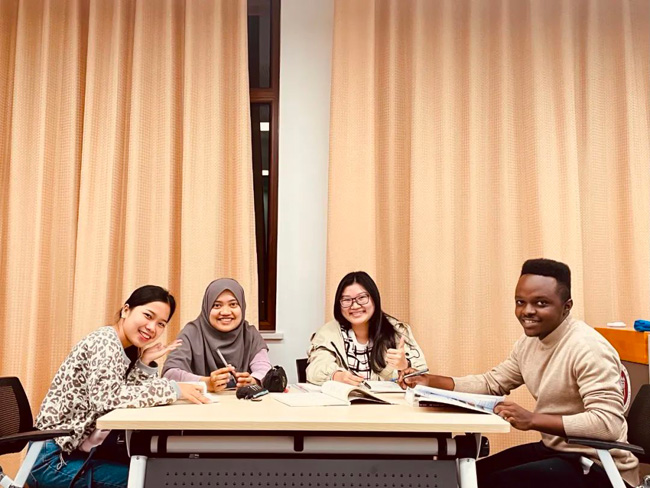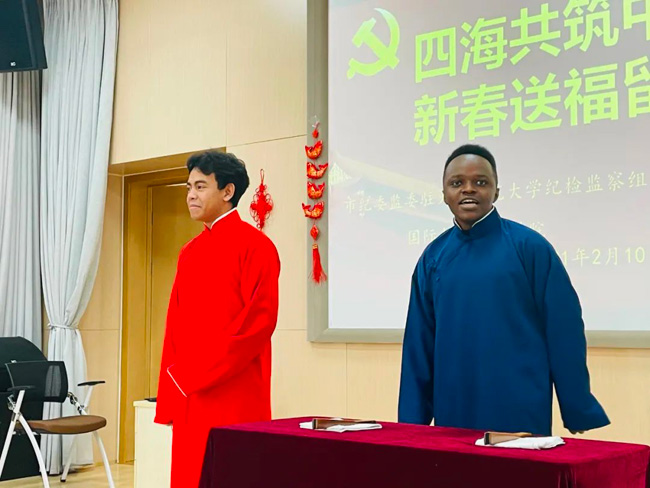Kenyan Student Kong Aikai: My Story with Chinese Language
Information Sources:China-Africa Innovation Cooperation Center
My name is Kong Aikai, and I come from Kenya. This year marks my seventh year studying and living in China, where I am currently pursuing a PhD at Tianjin Normal University. Since coming to China, I have fallen deeply in love with the Chinese language, culture, cuisine, and the kind and warm-hearted Chinese people.
When it comes to my story with Chinese language, it starts before I came to China. It was during high school that I was first exposed to Chinese characters, and the fascinating characters sparked my interest in Chinese culture. With the support of my family, my sister and I started learning Chinese together. We worked hard and successfully passed the HSK test, which earned us the opportunity to study in China.
Upon arriving in China, I made a daily plan for myself and carried a dictionary with me everywhere I went. Whenever I encountered an unfamiliar character, I looked it up in the dictionary. I also sought help from my Chinese classmates to correct my pronunciation and grammar. I tried various methods to broaden my learning of Chinese, such as reading Chinese books, listening to Chinese songs, and practicing repeatedly by comparing my recordings. Through continuous effort, I passed the HSK 6 test. My Chinese speaking became increasingly fluent, and I was often mistaken for having grown up in China.

I immersed myself in the study and life at Tianjin Normal University and developed a growing affection for the city of Tianjin. Tianjin is known as the hometown of traditional Chinese folk art. After my first exposure to the Chinese comic dialogue, I was captivated by it. In my spare time, I often appreciated the performances by Ma Ji, Guo Degang, and others, and I even signed up for a school-organized comic dialogue performance competition with my partner Rakotoarivony Mamisoa from Madagascar. Together, we became the rising stars on the campus comic dialogue stage.

Practicing Chinese comic dialogue has made my Chinese speaking even more fluent and deepened my understanding of Chinese culture. I discovered the similarities and differences between Chinese and African cultures and started incorporating elements of African culture into my performances. My friends and I created an African version of a popular comic dialogue piece called "The Menu," which was well-received by the people of Tianjin.
I hope to contribute my knowledge to cultural exchanges between China and Africa. I believe that as long as I work hard to nurture the seed of my dream, it will surely grow well, and I will become a towering tree in the future, bringing shade and hope to more people.
